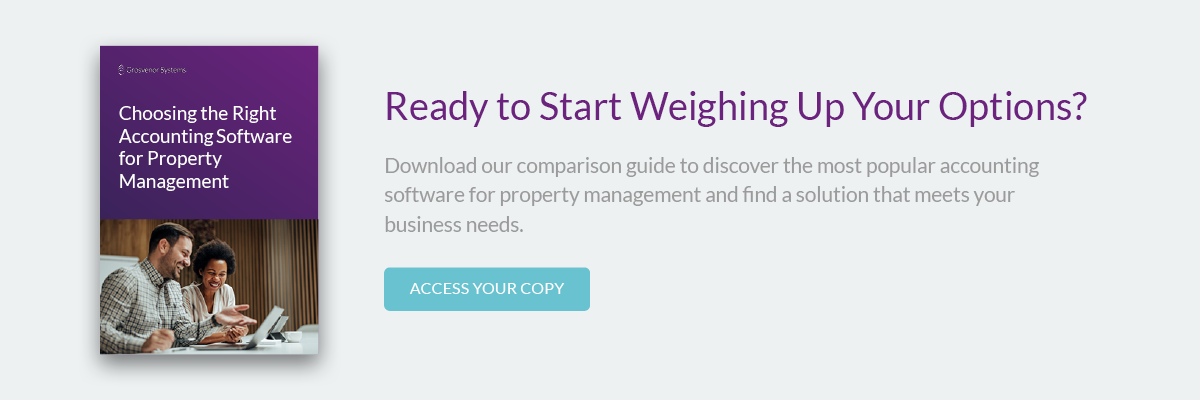Accounting for Property Management: Principles and Best Practices
Accounting is a large (and crucial) part of property management.
Without sound accounting, property management portfolios simply don’t work. Rent arrears and service charges become challenging to manage and accounts become financially inefficient, impacting on-site cash flow, which, in turn, impacts the ability of property managers to carry out on-site works. Late processing can lead to inability to recover service charge costs and result in lost revenue if correct practice is not followed.
Property management accountants must always follow property management accounting best practices and principles to guide how they work. For example, they must comply with the RICS service charge code of conduct and adhere to the RICS code of conduct for handling client monies.
Ultimately, accounting best practices are backed up by tools and technology; helping teams get more on top of payments and financial processes. Here’s how.

Disclaimer: This blog isn't a substitute for financial advice and is intended for informational purposes only. If you need financial guidance, please seek professional financial advice from an independent advisor or accounting professional.
Find clarity in your capital
Although most of us strive to move away from siloed working, we must keep separate financial funds for each property, development or client.
Having separate accounts is a property management best practice requirement under the RICS code of conduct for handling client monies — but it’s also more generally an accounting principle as seen in the US’s GAAP (generally accepted accounting principles) framework or the IFRS (international financial reporting standards) equivalent used in the UK.
Completeness and consistency in financial reporting mean there are no question marks over property accounts, no unexplained transactions and no incorrect taxation. When it comes to accounting audits, transparency in transactions is of utmost importance.
Technology can help you do this by creating specific trust or ‘bucket’ accounts for each property. This way, you can quickly access accounts and understand their health, knowing the overall financial performance of your portfolio but also keeping individual accounts clean by segregating investment and spending in a way advised by accounting bodies.
Avoid error with automation
In property management, accounting is helped by automation as many financial events are recurring. Rental payments, for example, as well as service charges, happen at the same frequency on the same date, making them the perfect candidates for automated options.
Rent arrears and other financial chasing can also be automated, so there's fairness in financial communications but also efficiency in balancing and settling individual accounts.
In these ways, automation helps remove human error, assists landlords and owners in never missing an important date and makes space for other activities like financial reporting. For larger portfolios, the ability to automate is more than a best practice but a must. At some point, it can become impossible to manually collect payments and communicate the status of payments if, for example, you’re dealing with more than 20 benefactors. At this stage, it becomes a given that an accounting team would need to use intelligent enough software to access these types of financial features.
Get property VAT status right
Getting property VAT recovery status right encompasses many property management accounting best practices. Although not necessarily a strict accounting principle, organising and allocating VAT to the correct transactions is crucial in reflecting true and accurate accounts, as well as making your trusts the most financially efficient they can be.
When managing their own portfolio, property accountants need to be aware of which expenses are generally tax-deductible. Items relating to operating costs, such as materials for maintenance or supplies for renovation, need to be recorded and uploaded with receipts to make full use of tax benefits.
Property management software with document storage and accounting functionality support accountants through the ease of uploading transactions as and when they happen.
Keep accounts updated
Last but not least is keeping accounts up to date. As in the above example, this means uploading receipts at the earliest opportunity and scheduling frequent financial reports to keep a close eye on any financial anomalies or trends.
By following all the other property management best practices, accounting teams can perform financial analysis rather than getting bogged down by menial monetary tasks.
Financial analysis can be critical in flagging any fraudulent activity or spotting spending discrepancies, but it can also help organisations financially innovate by making changes to financial behaviour. This could be something as simple as bulk ordering paint each year to save money on postage and packaging or something more strategic such as developing a new rental payments process or understanding the optimal time to send communications around invoices.
Find the right accounting software for you
Thinking of switching up the way you approach property management accounting?
Property management accounting best practices are the most successful when supported by relevant software. Activities such as automation are impossible to adopt without the assistance of property management technology. Keeping up to date with reporting is also made easier by having an interface that works in real-time with in-built reporting.
Find out more and compare your options with our free guide.
.png?width=1920&height=941&name=GS%20white%20clear%20(Large).png)

